Filters
Product Categories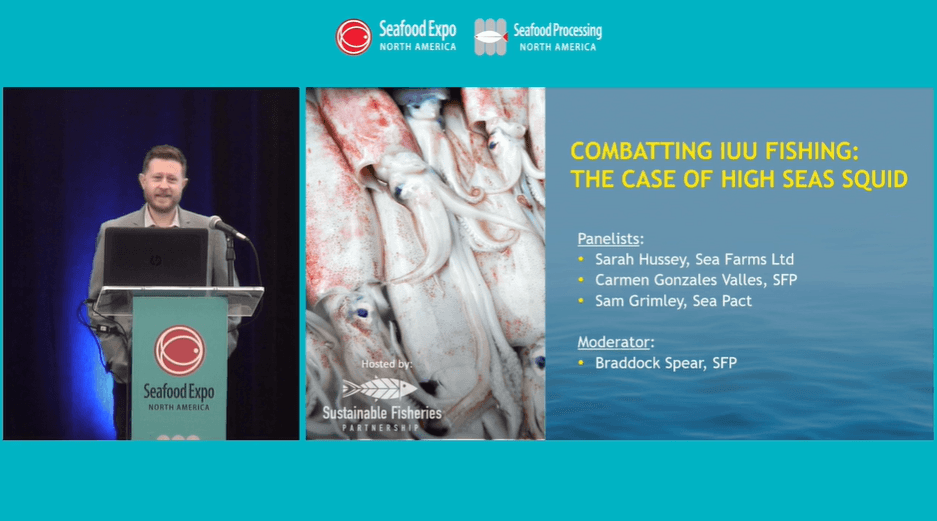
Moderator: Braddock Spear, SFP
Speakers: Sam Grimley, Sea Pact
Sarah Hussey, SeaFarms LTD
To combat each of the components of IUU fishing (illegal, unreported, and unregulated), different actions and multiple players are required. Governments need adopt laws, adhere to international agreements, set regulations, and enforce. Companies trading in seafood need to maintain ethical standards, support government actions to combat IUU, conduct due diligence of sources and suppliers, and impose consequences in response to illegal or unreported fishing activity. The high seas squid fisheries in the waters off the coast of South America presents a case study where governments and seafood companies are taking steps to stop IUU fishing. Our panel will provide three different industry perspectives on these issues in the fisheries and actions that have been, are being, and can be taken.
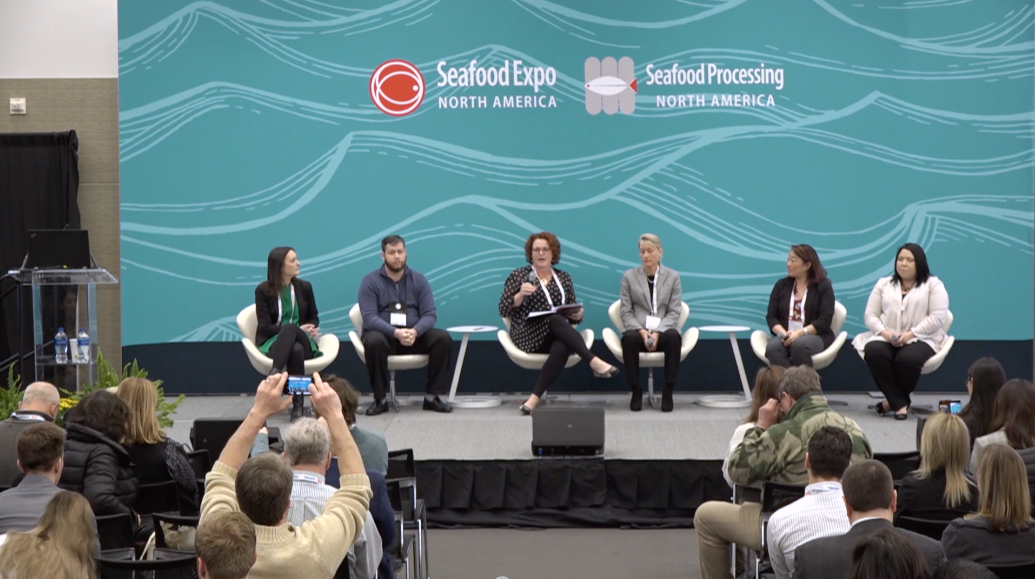
Speakers: Christine Burns Rudalevige, Coastal Culinary Academy; Abbie Curtis O’Reilly, GlobeScan; Brandon Hill, Sustainable Restaurant Group; Jennifer Lambert, Loblaw Companies Ltd.; Jan Tharp, Bumble Bee Seafoods; Shelley Zang, Kroger
A recent consumer survey found that 79 percent of American seafood consumers agree that fish must be protected for future generations. However, only 15 percent of American seafood consumers feel that retailers and large companies are effectively protecting the ocean environment. How can this gap be bridged? This session will attempt to better understand consumer behavior and the roles that brands, retailers, distributors, restaurants, and NGOs play in this important space. It will also unpack consumer decision-making at point of purchase, and the role the Marine Stewardship Council plays in purchase motivators. The panel will open with an overview of the survey results by Globescan, followed by input from industry leaders on how they are engaging with consumers and making them feel more confident in their purchases. Time will be dedicated to engaging the audience in a discussion about how to empower consumers in their purchasing decisions. The goal of this session is to gain an understanding of consumer purchasing motivators and market trends so that seafood brands, retailers, etc., can better inform their sustainability practices.


What a Biden Presidency Means for the Seafood Industry
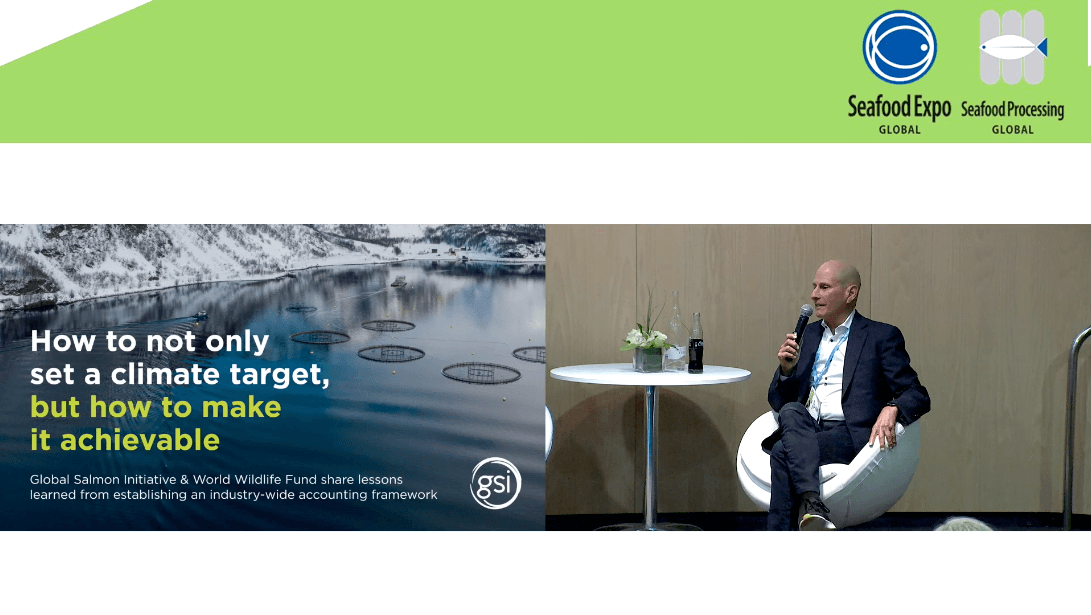
Speakers:
Avrim Lazar
Carlos Diaz
Kristina Furnes
Emily Moberg
Sophie Ryan
The race to zero is on, and we know it needs to be done. But the question is how do we get there? Aquaculture already has a low carbon footprint, but improvements still need to be made to ensure we maintain our position as a climate-friendly option. The changes required are across the supply chain, and affect the whole industry, no matter of location. Recognizing that collective efforts could help accelerate change, over the last year the Global Salmon Initiative has been working in partnership with the World Wildlife Fund to establish an accounting framework for greenhouse gas emissions for the farmed salmon sector, from feed to consumer. Prioritizing stakeholder collaboration and shared learning, this project has developed a cohesive accounting framework with ambitious mitigation goals in mind. In this session we will share how the framework was developed, its uses for both farmed salmon and the wider aquaculture industry, and the many opportunities collaboration offers in scaling mitigation efforts from on the ground experience.

Exploring Safety, Freshness, and Market Opportunities for Seafood Products with High Pressure Processing (HPP)
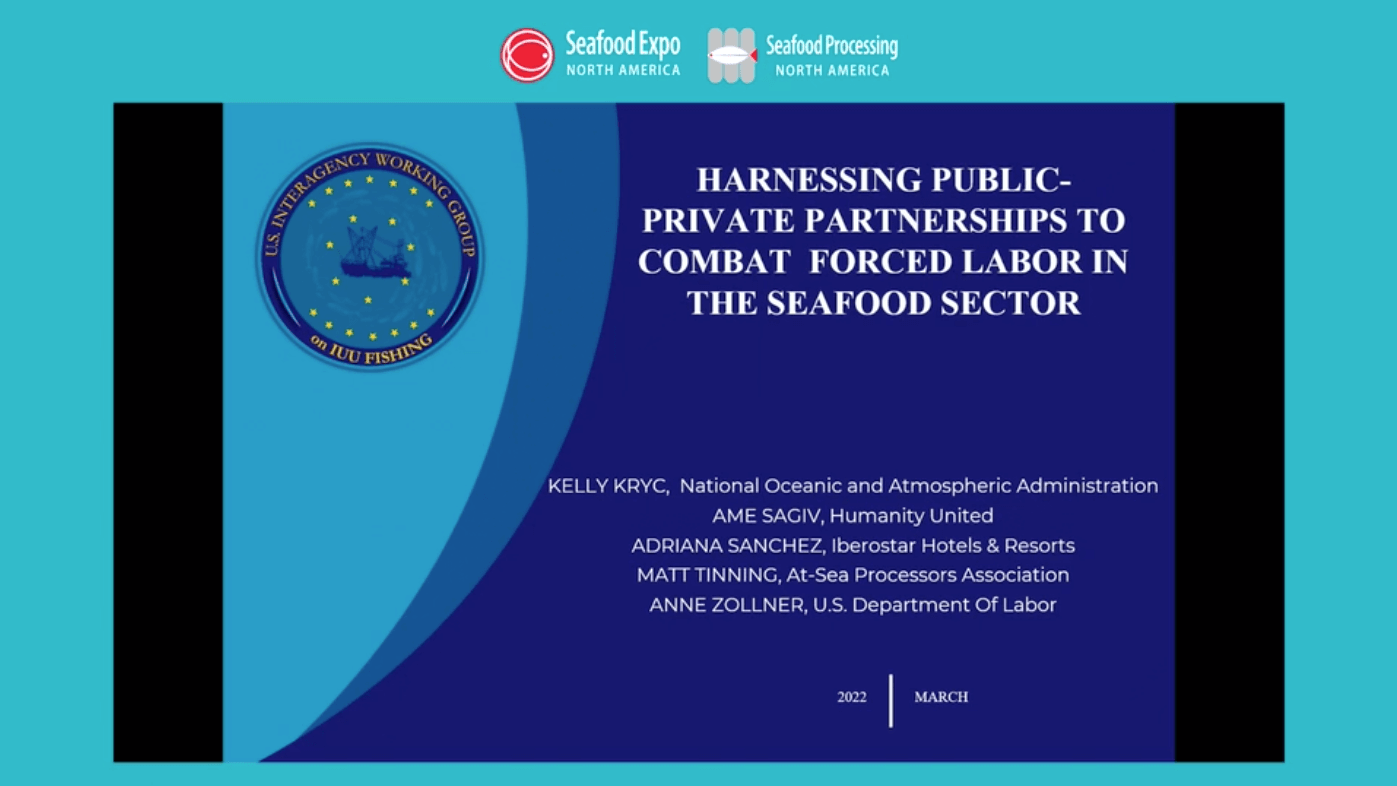
Moderator: Kelly Kryc, NOAA
Speakers:
Ame Sagiv, Humanity United
Adriana Sanchez, Iberostar Hotels & Resorts
Matt Tinning, At-Sea Processors
Combating forced labor in the fishing industry is a priority for the seafood sector and has emerged as an especially difficult challenge for governments, industry, and civil society. Addressing harmful labor conditions requires a comprehensive approach due to the inherent industry risks, the complexity of the global seafood supply chain, and the diversity of authorities participating in the fishing sector. This session brings together representatives of the U.S. government and outside stakeholders under the auspices of the 21-member U.S. Interagency Working Group on IUU Fishing, which was established to provide a whole-of-government approach to combating IUU fishing and associated issues like forced labor. The wide-reaching discussion will focus on the current landscape, challenges, and innovative opportunities to leverage public-private expertise and resources to combat labor issues in the seafood sector.

The ability to track and trace products throughout the entire supply chain has become of paramount importance to the seafood industry, as consumers have become increasingly interested in transparency, authentication, food safety, and sustainability.
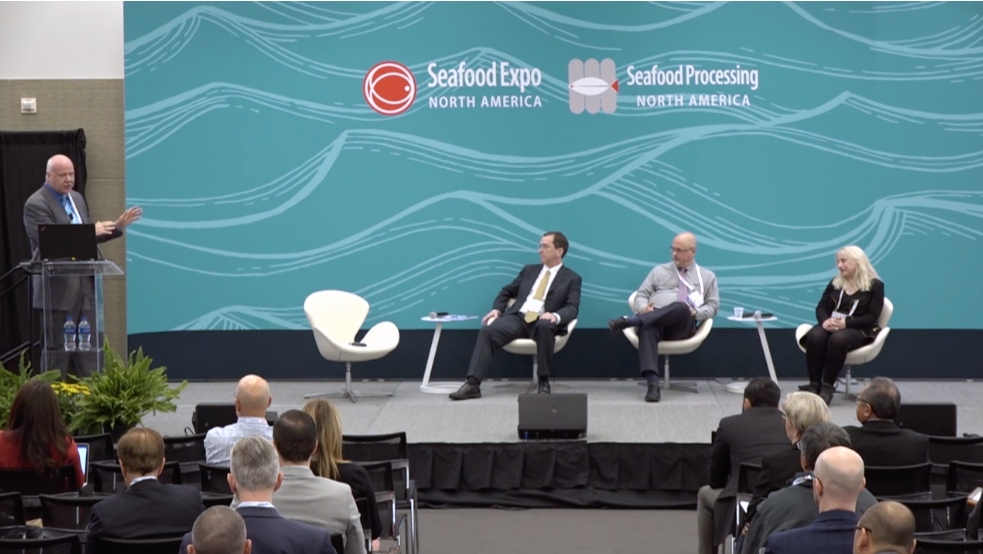
Speakers: Benjamin England, FDAImports.com, LLC; Steve Bloodgood, US Food And Drug Administration; Troy Petrillo, US Food And Drug Administration; Jessica Rifkin, Benjamin L. England & Associates, LLC and FDAImports.com, LLC
The session will explore FDA’s and Customs’ inspection and audit processes for seafood processors and importers and seafood import shipments. Hear from FDA and Customs officials on what to expect in 2019, what they think is important, and why. Pick up tips on what you should be doing to make these inspections go more smoothly. Learn what seafood importers should avoid to reduce the risk of Customs actions. With the support of reality-based case studies, this panel will explore the importance of integrating regulatory compliance across many agency jurisdictions – and the potential pitfalls for seafood processors and importers. Hear how Custom’s Automated Commercial Environment (ACE) acts as a Single Window for Multi-Agency Enforcement. The panel will also discuss how new and renewed free trade agreements and tariff changes inform agency inspections and data requests and impact the seafood industry in particular.
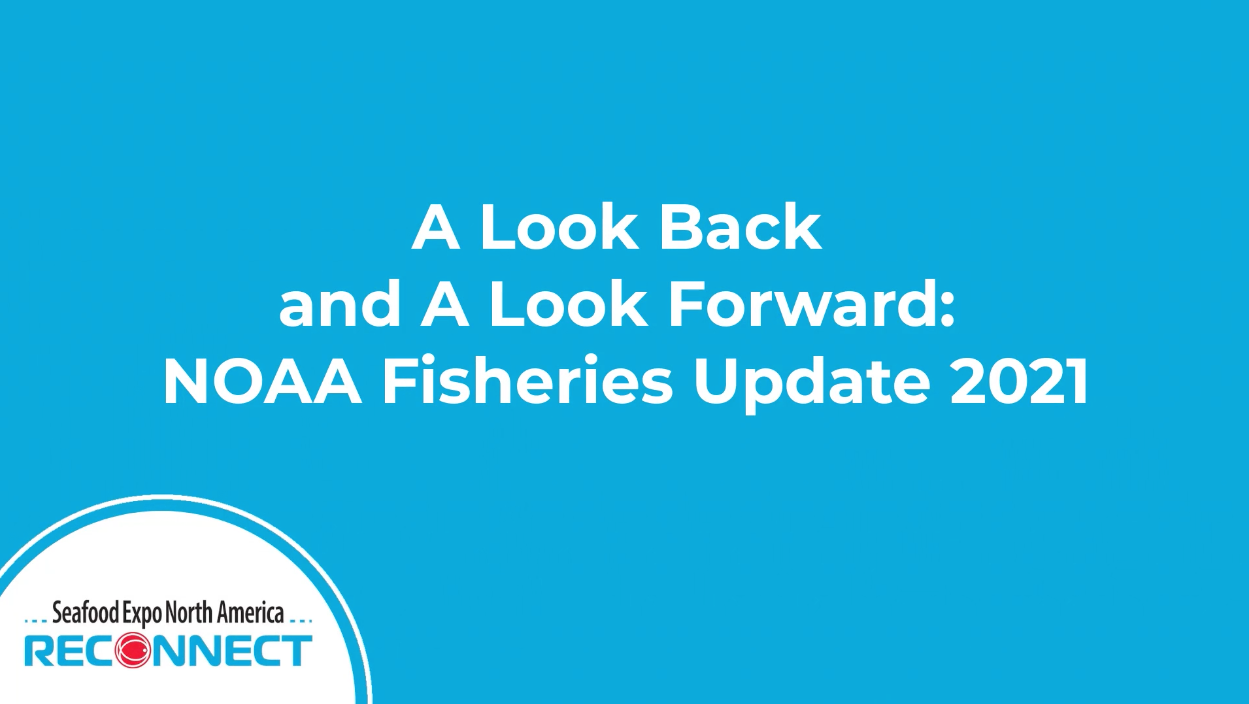
Speakers: Kate Naughten, Director of Communications - NOAA Fisheries; Alexa Cole, Director, Office of International Affairs and Seafood Inspection - NOAA Fisheries; Paul Doremus, Acting Assistant Administrator - NOAA Fisheries
Session Description: 2020 was an unprecedented year for the U.S. seafood sector due to the impacts of COVID-19. Fishermen, growers, processors, and the broader seafood sector nationally suffered revenue losses and market and trade disruptions, and scrambled to pivot to new markets. In this session, NOAA officials examine key issues, policies, impacts, and advancements critical to building a more resilient U.S. seafood sector—both fished and farmed—and how rebuilding will continue to play out in 2021 and beyond. NOAA officials also discuss new opportunities for U.S. aquaculture in 2021 and new, federally led efforts to combat Illegal, Unregulated, and Unreported fishing.





